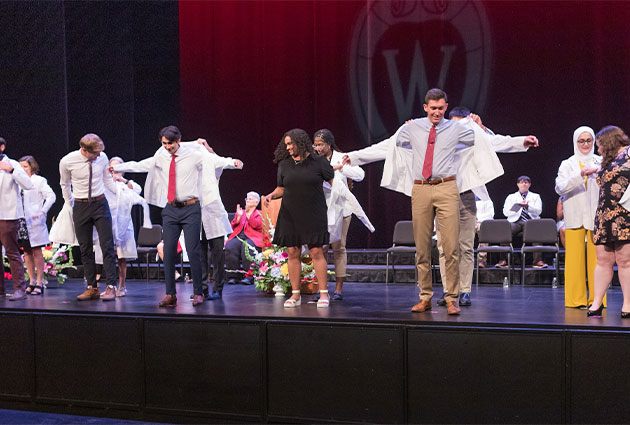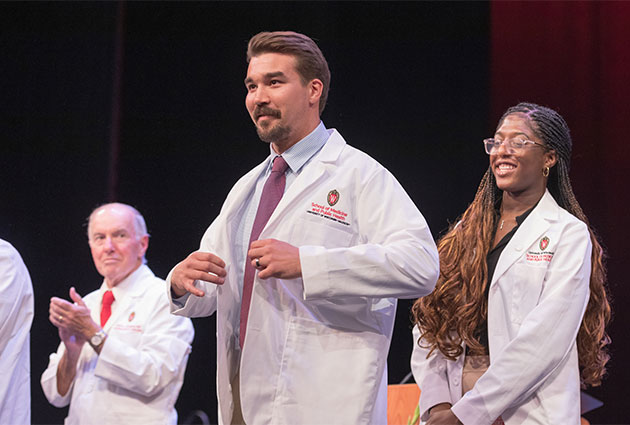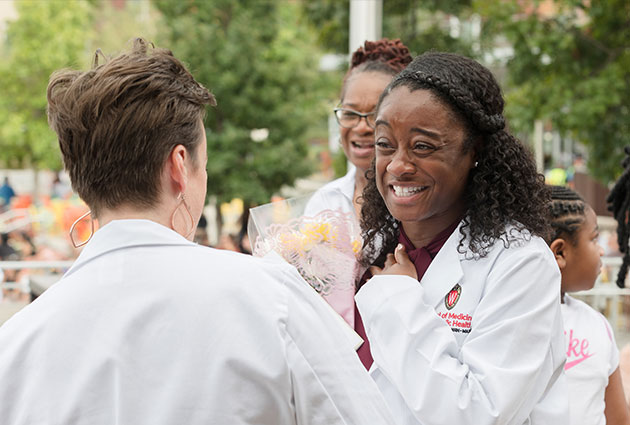Golden encouraged students to take advantage of the numerous opportunities available during their medical training, such as gaining experience caring for rural and urban communities or pursuing special training in research, public health, medical education, bioethics or interprofessional practice and education.
“Regardless of your current interests, I strongly encourage you to explore those areas of medicine that you believe you are not interested in,” he said. “There’s always the chance you might change your mind, but no matter what you pursue, you — and your future patients — will benefit from the broader, more complete perspective you will gain.”
Robert J. Dempsey, MD, Manucher Javid Professor and chair of the Department of Neurological Surgery, gave the faculty keynote speech. Dempsey shared lessons learned from his wide-ranging career spanning three decades at the school. Encouraging students to reflect on the theme “who inspires you,” he recalled impactful mentors who helped launched a career that has taken him across the world to help build self-sustaining medical programs that serve local communities.
“I’ve worked on five continents, I’ve met people worldwide, and I assure you that each of us have the same values or pillars of our life: faith or values, family, peace and health,” Dempsey said. “If one of them crumbles, all of them will. If we in our own small way can do something to build one of those pillars, we may just be able to support them all.”
All roads lead to medical school: students take diverse paths to medicine
The newest crop of medical students clearly plan to take their speakers’ advice, keeping an open mind about future specialties while staying laser-focused on their passion for helping others.
Incoming student Mike Plaza grew up in Rothschild, Wis., near Wausau, and attended the United States Air Force Academy to complete an undergraduate degree in engineering. While he knew he wanted to become a physician in high school, he charted a different path initially in active duty as a civil engineer. He then spent a few years at Joint Base McGuire-Dix-Lakehurst in New Jersey, joined by a woman he met at the academy who would later become his wife.
In 2021, Plaza was deployed to Afghanistan from June until October. He described how the solitude of the desert helped him reflect on his life and career. Package delivery to the desert made it possible for him to order an MCAT study guide and make a plan for applying to medical school.
“On a deployment, you’re basically stripped down to a bare minimum where you have your meals, your laundry, your work within walking distance and a lot of time to reflect, and I think that was the final straw,” he said. “I returned to my roots and that dream of becoming a doctor. I thought, I’ve had this dream since I was 15 so let’s make it happen.”




